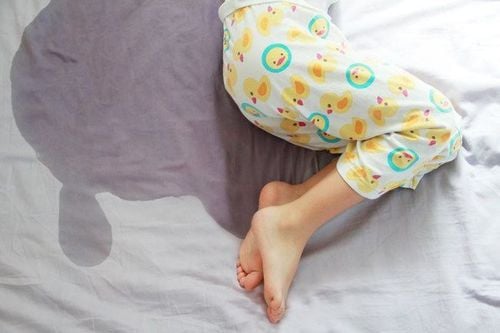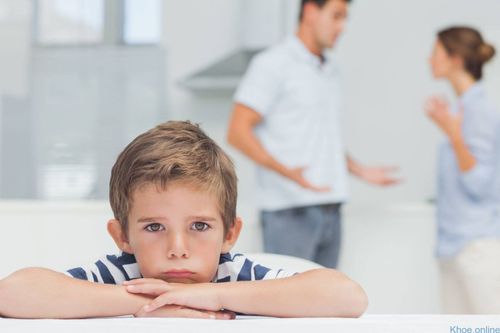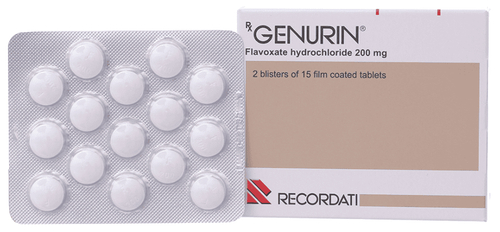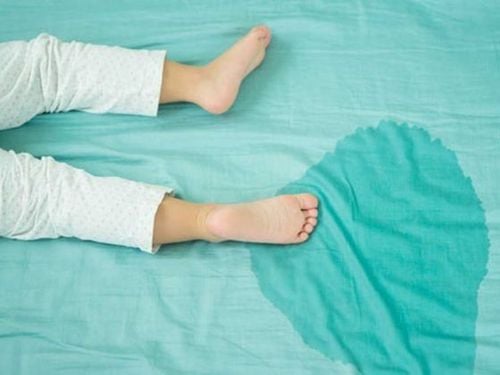This is an automatically translated article.
Bedwetting or bedwetting in children can be common in young children. But how can you tell if your baby's bedwetting problem is a normal part of a growing child or a medical problem for which he or she may need some help? In toilet-trained children who have complete bladder control, the bladder retains less urine during sleep hours so that the child can sleep through the night without wetting the bed. But in some children, their bodies are immature and urine production doesn't slow down at night, causing their bladders to become overfilled - and that's why they wet the bed. In this article, we will provide useful information for parents to understand when bedwetting in children is abnormal and when is normal.Most of the time, nocturnal bedwetting is not related to a serious medical condition or underlying medical problem. Children just need more time for their bodies to mature enough and be able to control their ability to urinate at night. However, if in addition to bedwetting, the child also has a number of other unusual symptoms, parents will need to consider taking the child to a medical facility to be diagnosed and treated by doctors to avoid these complications. adverse health effects.
1. Causes of bedwetting in children
There are many causes of bedwetting in children at night and they all come with different treatments. Most children with nocturnal enuresis urinate normally during the day (they never wet their pants at school, for example), but have never stayed dry overnight for more than 6 months. This type of bedwetting is called primary nocturnal enuresis. Primary nocturnal enuresis can have three causes and in many children bedwetting is caused by a combination of two or more of the following:
Difficulty waking up: Some children sleep so much that when the bladder is full and the It tells the brain that it wants to pee, but it's not enough to wake them up. Bladder instability: Instability of the bladder is also known as low functional bladder capacity. This is a condition in which the bladder fills quickly and the child cannot hold it in overnight. Experts say this is the cause of one in three cases of bedwetting in children. Excessive production of urine at night due to hormonal imbalance. Normally, the brain produces more of a hormone called vasopressin at night, and this hormone reduces urine production. According to experts, about 3 in 5 children do not produce enough vasopressin hormone, so too much urine is produced and lead to bedwetting in children.
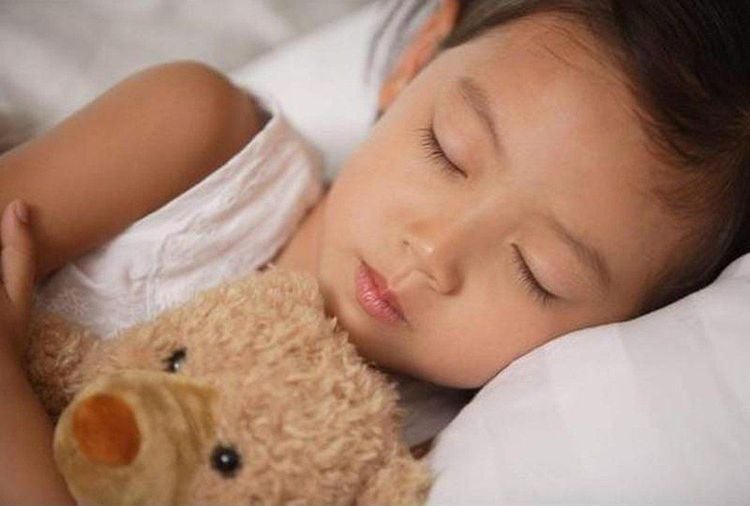
Trẻ ngủ khó thức dậy có thể là nguyên nhân gây đái dầm
2. Signs that bedwetting in children is normal
If not accompanied by other symptoms, constant bedwetting in children is normal in the following cases:
Children 7 years of age or younger. According to the American Academy of Pediatrics, about 90% of children are able to control their own nighttime urination by age 7. However, some babies need months, or even years, or longer to get the physical development needed to stay dry at night. The child's father or mother frequently wet the bed when they were young. Children whose parents also frequented bedwetting when they were young are also at a higher risk of developing the condition. Bedwetting is a common occurrence in children. Bedwetting can be considered normal if the child always has this problem for a long time until he is really mature enough to control his ability to urinate. However, if a child who has controlled urination suddenly develops nocturnal enuresis, it could be a sign of a worrisome medical condition or simply a small change in life. child's life such as moving house, transferring schools, meeting new friends, making new relationships... What parents need to do is discuss this with the doctors to make sure if the child has any problems. Health-related problems must be detected early and treated promptly. Children wet the bed at night but can still sit on the potty on their own and have good urinary control during the day. If that suddenly changes, talk to your doctor to make sure it's not a serious health problem. There are no other symptoms. Medical conditions are often accompanied by symptoms other than bedwetting, such as constipation, fever, or burning pain when urinating....
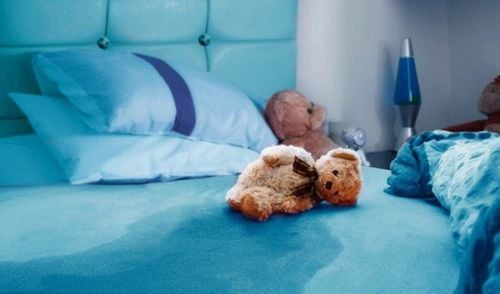
Đa số tình trạng tè dầm ở trẻ là bình thường
3. Signs that bedwetting in children is abnormal
Sometimes, bedwetting can be a sign of an underlying health problem, most commonly constipation or a urinary tract infection. Take your child to medical facilities for a check-up or call the doctor if the child has frequent bedwetting and is accompanied by any of the following signs:
The child's bedwetting returns after a long period of self-monitoring control the ability to urinate at night; Children with constipation; The child needs to urinate often or urgently needs to urinate; Your child feels pain, burning or straining when urinating; Slightly pink urine or blood stains on the child's underwear; Urine has a bad smell; Fever of 38 degrees Celsius or higher; Children are extremely thirsty; Rash or skin irritation near the genital area. If the parents of a child feel their child's nighttime bedwetting is serious, causing trouble for the child or family in daily activities, or simply want a checkup to reassure themselves that the child is not experiencing any problems. any serious health problems take the child to medical facilities. In addition to the examination and diagnosis, they can also offer advice on managing nocturnal enuresis or discuss options with the child's parents about possible treatment options such as using alarms. bedwetting or taking certain medications.

Cha mẹ nên đưa trẻ đến gặp bác sĩ chuyên khoa khi trẻ có những dấu hiệu bất thường
Although bedwetting in children is common, they can be stressful for children and lead to negative emotional consequences for children and their families. Seeking help early (in the case of children over 5 years old) is the best way to make sure your child gets the right treatment and that worries about bedwetting go away soon. Not only will it help parents get a good night's sleep without having to worry about having to wash a pile of blankets the next day, but the kids will also feel their self-esteem increase and family life will be improved. improved.
Bedwetting is a normal development in children, parents should not be too worried. However, if your baby has a fever or painful urination, you should take him to a medical facility for early examination and treatment. Vinmec International General Hospital is one of the few medical facilities with a urologist at the Pediatric Department, providing intensive examination and treatment for children. Here, the child will be examined by experienced and highly qualified doctors who have successfully examined and treated thousands of pediatric cases of urinary tract diseases with the latest protocols. the world's most advanced.
If you have a need for urology examination for children at Vinmec, please book an appointment at the website or contact the hotline for detailed advice.
Please dial HOTLINE for more information or register for an appointment HERE. Download MyVinmec app to make appointments faster and to manage your bookings easily.
Reference sources: babycenter.com, myvmc.com



